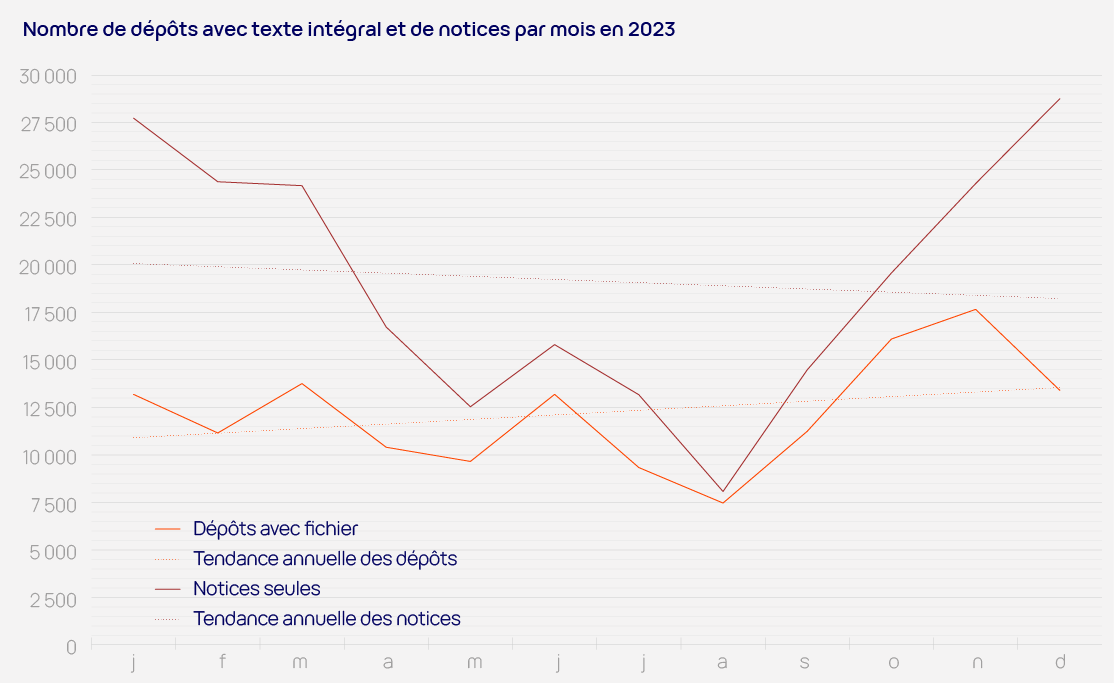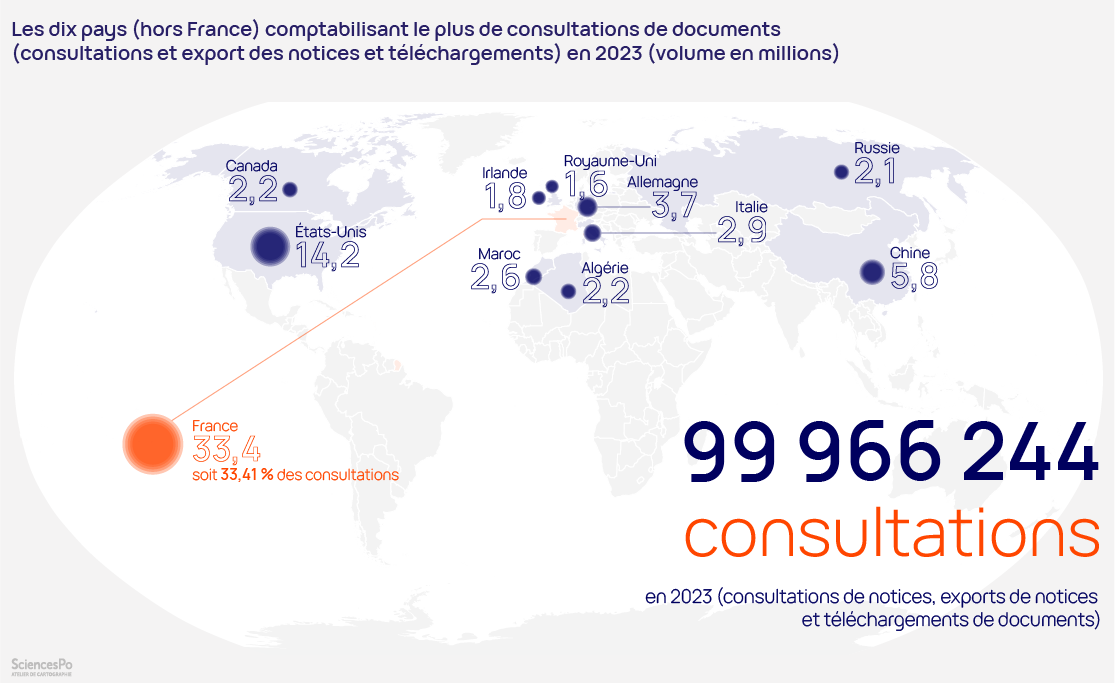An international conference to celebrate the 10th anniversary of Episciences, the first face-to-face meeting of the HAL Partners Assembly, a new suggestion service to automatically enrich HAL: these are three key events for the CCSD in 2023. The Annual Activity Report details the CCSD’s activities and significant progress towards its mission of open, public, responsible and sustainable scientific publishing
About HAL
146 704 new deposits with file in 2023 (137 448 in 2022).

The new deposit suggestion service, launched on 5 December, was an immediate success, with 1584 new deposits imported through the service. Over 6,000 user accounts tested the service during the month of December. This first deliverable of the HALiance project introduces a new way of feeding HAL: it allows researchers to automatically import the full text of their publications that are already open access, either by adding the file to an existing deposit or by creating new deposits.
Another feature was also launched in december that facilitates the process of submitting a preprint deposited in HAL to a publication or peer review service. For researchers, this means an evolution of the deposit form that makes it easier to submit the document to one of the journals distributed by Episciences for publication, or to one of the thematic communities of Peer Community In (PCI) for a recommendation. Since the launch of the service, 29 manuscripts have been submitted to an Episciences journal.
HAL represents a leading corpus of scientific publications and contributes fully to the visibility of French science: in 2023, the archive will have accumulated nearly 100 million consultations (record views and document downloads).

The identifiers present in the metadata of deposits facilitate their discovery and access. Therefore, in 2023, the CCSD continues its strategy of alignment with ROR for organisations and ORCID for authors, which are stable and recognised identifiers in the international community. Their use enhances the interoperability of the HAL while simplifying the process for researchers.
User support remains a priority for the CCSD: the development and intensification of a more tailored training offer for HAL users was a major focus in 2023.
About Sciencesconf
With 2,434 conferences created in 2023 and nearly 76,000 communications submitted, Sciencesconf confirms its role as a platform offering practical services that simplify the management of scientific events.
About Episciences
It has been a very eventful year for Episciences. There was, of course, the international conference organised at the end of March to celebrate the 10th anniversary.
In addition, five new journals were added to the catalogue in 2023 :
- Archéologies. Sociétés, réseaux, matériaux
- Electronic Notes in Theoretical Informatics and Computer Science
- Open Plasma Science
- Le partenariat de soin avec le patient : analyses (coming soon)
- Recherches en didactique des mathématiques
In 2023, the platform hosts 30 journals, which published 479 articles. It also strengthens its multidisciplinarity by adding bioRxiv and medRxiv to the list of open servers and archives accessible for manuscript submission to journals distributed on the platform. It is now also interoperable with Software Heritage, enabling software citation and valorisation.
Security and transparency
Investments have been made through the HALiance project to secure and improve the performance of the infrastructure. The CCSD’s commitment to greater transparency is reflected in the publication of the annual action plan and a website outlining the principles and operating procedures of the HAL. Creating and providing a collaborative and inclusive ecosystem where everyone can find the resources and support they need is one of the (many) goals of the team.